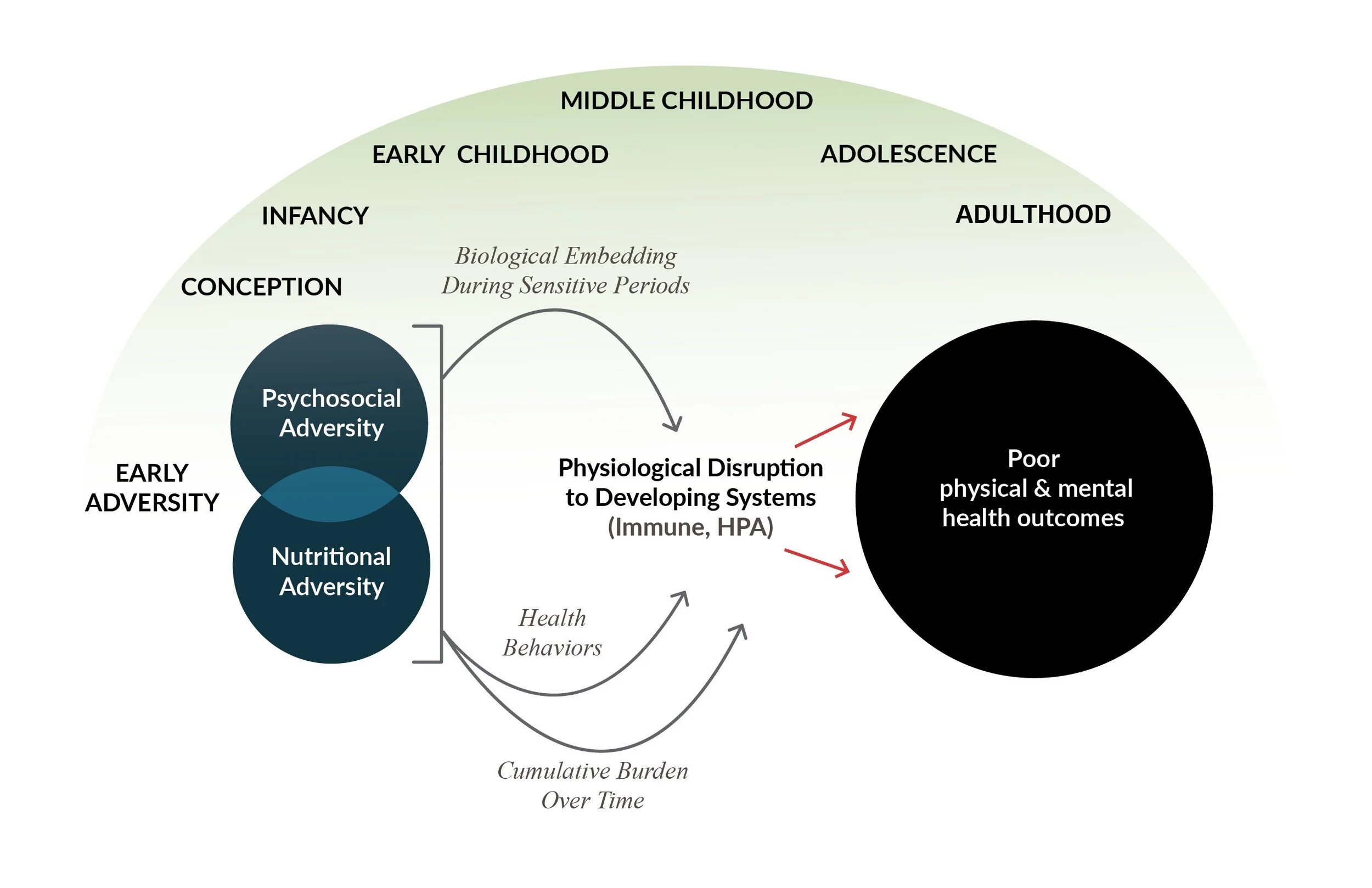Selected Research Projects
Getting “under the skin”My research projects (A) characterize how stress biology and nutrient metabolism work together to (B) understand how the brain and body prioritize resources, and (C) lay the foundation for the architecture of life long physical and mental health.
Machine learning methods to assess risk for prenatal and neonatal iron deficiency anemia from maternal stress exposure
This K99 aims to determine biological and behavioral pathways by which maternal psychosocial stress in pregnancy impacts risk for maternal and infant iron deficiency anemia (IDA). IDA increases the risk of adverse pregnancy outcomes and can negatively impact the iron status of the neonate that may cause irreversible harm to neurodevelopment. There is growing concern that oral vitamin supplementation might not be enough to counteract the risks of IDA in the context of systemic inflammation, including inflammation produced by chronic psychosocial stress and subsequent neuroendocrine dysregulation.
(K99HD109373, $1,000,942, PI: Reid)
Early life stress and cardiometabolic health in adolescence
R01 studying how stress and malnutrition exposures in infancy are related to stress-related biobehavioral mechanisms of health risk in adolescence, a period when mental and physical health risk measures begin to predict adult outcomes. Integrates cardiometabolic, behavioral, and immune measures in a longitudinal cohort of adolescents and emerging adults exposed to stress and nutritional adversity limited to infancy.
(R01HL149709, $3,045,964, PI: Gunnar, Role: Co-I)
Santiago Longitudinal Study
In collaboration with the University of Chile, Santiago, Dr. Betsy Lozoff (University of Michigan), and Dr. Sheila Gahagan (UCSD), my dissertation examined how early-life adversity and iron deficiency anemia (IDA) in infancy were associated with inflammation in adolescence and mental health in emerging adulthood. Conducted in a prospective cohort from Chile who was part of a randomized controlled trial of iron supplementation in infancy.
My research characterizes the biology of psychosocial and nutritional adversities, uses a systems-based approach to determine how these adversities affect mental and physical health, and advances the understanding of typical and atypical child development. Critically, these investigations emphasize identifying sensitive periods when prevention and treatment strategies targeting nutritional and psychosocial adversity will have the most significant impact.



